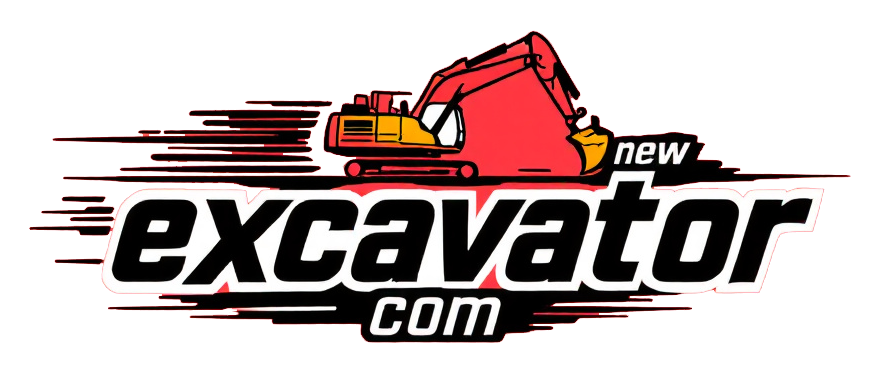If you are managing small-scale construction, landscaping, or renovation works, the right kind of equipment will either make the job go well or waste your time and money.
Large standard excavators usually can get you the force you need; on the other hand, they still miss some flexibility and accuracy, which are necessary, especially if it is about confined spaces or small budgets. It is at this stage that the mini excavator comes on stage—the leading machine for small projects that need to be performed in an efficient, easy, and quality manner.
The decision to go with a mini excavator for your small projects is smart, and it will turn out to be a versatile investment in any case, whether you are a contractor working in residential neighborhoods, a landscaper revamping a backyard, or a DIY homeowner handling weekend projects.
Without limiting ourselves just to the ‘why,’ we will also look into their plus points and the factors to consider while purchasing and compare them to the rest of the compact equipment options in this article.
What Is a Mini Excavator?
A mini excavator, or a compact one, is technically a small counterpart of a standard excavator with a total weight of about 0.8 to 6 tons. These are basically the same machines as the full-size excavators but lack the size and weigh less. Alongside the cab, they are equipped with tracks, a boom, an arm, and a bucket.
The real brilliance of mini excavators is in the small or limited space that is unreachable by traditional heavy equipment where they can work there with no problem. They incorporate the same core functionalities of a full-size excavator, but with better accessibility and less environmental disturbance.
Why Use a Mini Excavator for Small Projects?
Mini excavators offer all these advantages and more. Small jobs need to be done with precision, efficiency, and at reduced costs.
✅ 1. Compact and Agile
Mini excavators can easily get through doors, long narrow passages, and tight spaces in backyards. They fit perfectly in city or residential work zones because of their small size.
✅ 2. Versatile Attachments
By just changing the attachments, mini excavators can do various activities such as digging, boring, breaking, or trenching without the need to have different machines.
✅ 3. Cost-Effective
Mini-excavators use less gas, take less space in a smaller trailer for transport, and usually, the rental or purchase costs are lower than for an ordinary excavator — just what you need for a limited project budget.
✅ 4. Low Ground Impact
They do not damage the soil so much because they are made from lightweight materials which reduce soil compaction and surface damage hence they are suitable for landscaping or working on the sensitive area of the earth.
✅ 5. Easy to Operate
The controls of present-day manual mini excavators are very user-friendly, so even new operators and DIY users can handle them.
Ideal Small Projects for Mini Excavators
Mini excavators can do a variety of tasks from very light to medium duties successfully. They are used in a lot of common small projects as follows:
🏡 Residential Landscaping
- Building flower beds or garden ponds
- Removing tree stumps or shrubs
- …
- Installing irrigation systems
🚧 Light Construction
- …
- Trenching for utilities
- Preparing the ground to build storage or carports
- Concrete breaking as a part of a patio remodel
- Small-scale destructive work
🏠 Home Improvement
- Septic system installation or replacement
- Ground digging for decks or fences
- Swimming pool digging
- Retaining wall building
🛠️ Farm and Property Maintenance
- Brush removal
- Making ditches for drainage
- Digging holes for fence posts
- Fixing gravel driveways
What to Look for in a Mini Excavator for Small Projects
When selecting a mini excavator for small-scale works, incorporate the following qualities while deciding the best fit for you, to get a smooth and trouble-free work session:
📏 1. Machine Size & Weight
- The models that are under 2 tons should be the first choice as they can be transported easily and the effect on the ground will be minimal.
- Being able to fit a very narrow (for example 28–39 inches wide) machine even in a very tight gate and small spaces between houses is possible.
🔄 2. Zero Tail Swing
Those kinds of machines that possess zero or at least reduced tail swing are considered to be safer and more efficient in small spaces. This is so because the chances of the machines hitting something are quite low.
⚙️ 3. Hydraulic Flow & Power
If a project requires that you install equipment such as an auger or a breaker, a certain machine must be able to provide you with enough hydraulic power for quality work.
🔀 4. Attachment Compatibility
The best thing about a quick-attach coupler system on a mini-excavator is that you can easily switch between different tools whenever you want to without wasting any time.
🚜 5. Stability & Reach
Find the ones that have the undercarriage which can be extended and dig depth is enough (normally 5–8 feet for small jobs) so they can be used on different land and for various purposes.
🎮 6. Ease of Use
Intuitive joystick controls, multiple work modes, and digital displays are all features that are incorporated in machines which make operating a machine a very easy task for a beginner as well as for a professional.
Top Mini Excavator Models for Small Projects (2025)
Some of the best and reliable mini excavators for small-scale projects are mentioned below:-
1. Kubota KX008-5
- Weight: 2200 lbs
- Compact yet powerful
- Super skinny model for your indoor or even backyard tasks
2. Bobcat E10/E10e
- Width: 28 inches with retractable tracks
- Noise-sensitive areas (E10e) can use the electric version only
- Users are great for homeowners and interior renovations
3. Takeuchi TB210R
- Weight: 2535 lbs
- No tail swing of any kind
- High lifting capacity + perfect balance
4. TYPHON Mini Excavator (Model C10 or X12)
- Weight: 1000–1600 lbs
- Designed especially for very narrow spaces
- Cheap, multifunctional, and not difficult to maintain
Renting vs Buying a Mini Excavator
In the case of small or one-time projects, renting is considered to be the most suitable option. On the other hand, if you are into the light construction or landscaping business regularly, then it is better to buy one, which will save you money in the long run.
Renting Pros:
- Low initial costs
- Escapes the need for upkeep
- Access to the most recent variations
Buying Pros:
Rental Tips:
- Look if the accessories are included
- Understand whether the rate applies for an hour, a day, or a week
- Before starting the operation, check the machine
Mini Excavator vs. Skid Steer for Small Projects

Safety Tips When Using Mini Excavators on Small Jobs
- Always be sure to thoroughly check out the site for underground utility lines before you get your shovel ready for some digging.
- Before using the machine for any work, be sure to level it for better stability.
- Wear proper Personal Protective Equipment (PPE) like a helmet, gloves, and shoes.
- Make sure not to overuse the machine beyond the limits set for it or for the lifting capacities.
- If you are rotating your cab or are close to structures while moving, be sure to keep a lookout for your surroundings.
Final Thoughts: The Mini Excavator Is a Small Project Powerhouse
Whether it is backyard landscaping or trenching for home utilities, the mini excavator stands as the best small projects solution. Its capability to bring in precision, power, and versatility to even the tightest of areas is what makes
Despite being small and powerful, these devices are able to perform tasks that would take a long time if done manually, thus enabling you to complete more work in less time and still maintain the same quality.
